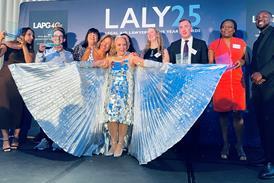A woman solicitor has succeeded in her employment tribunal claim that she was paid less than a male colleague, denied flexible working and deliberately set up to fail by being assigned too much to do.
Shipping specialist Helena Biggs brought claims for sex discrimination, victimisation and harassment against London insurance firm A Bilborough & Company Ltd, where she worked for almost 14 years, and two of its claims directors. She also succeeded with a claim for unfair dismissal.
In a hearing lasting seven days, East London employment tribunal heard Biggs was labelled the ‘enforcer’ because she had to address underperformance amongst colleagues, but she had been paid less than her male colleague for five years after they were both promoted to associate director.
Employment Judge Jones ruled that a claims director at the firm had used sexist language when he referred to Biggs as ‘pushy’ during a discussion about bringing key performance indicators into the business. It was ‘highly unlikely’ that a man displaying the same level of eagerness would be described the same way, ruled the judge. The tribunal also condemned that Biggs was invited to ‘use her charms’ to persuade a colleague do some work.
In addition, references to her being ‘overly dominant’ and ‘incredibly ambitious’ by bosses were negative statements about her drive and hard work, which were not judgements that would be made of a man.
The tribunal found Biggs was discouraged from seeking a role on an industry sub-committee when all her peers had been encouraged, a response ‘more than likely’ because of her gender. Biggs was also told her request to work from home would ‘set a precedent’, while male colleagues’ had similar requests approved.
The tribunal found Biggs was subjected to unfair criticism in her appraisal because of her complaints about equal pay and because she was ambitious. It was further found that Biggs was given a list of objectives designed to overburden her, to give her goals she could not achieve and make it so she never got to the point where she would be promoted. These objectives ‘amounted to an excessive and impossible workload… put together because of her gender and to create an oppressive environment for her’ While Biggs’ line manager made time to meet with her colleague fortnightly, while he ‘did not relish’ meeting with the claimant and put it off.
The tribunal also heard that another director of the firm made comments which stereotyped women or were derogatory: he told one female worker she should ‘keep her legs shut’ after Biggs had said she would be going on maternity leave, and suggested on another occasion Biggs’ friendship with a female client might be because the client was a lesbian.
The firm defended paying a colleague more than Biggs on the basis of market forces, saying he had been qualified for longer. It also submitted that it had spent £16,000 on funding Biggs’ MBA. On flexible working, it said it had supported Biggs in day-to-day working arrangements and agreed to 99% of requests to work from home.
Biggs' claim for disability discrimination was dismissed. Both parties were invited make written representations about remedy issues.


























